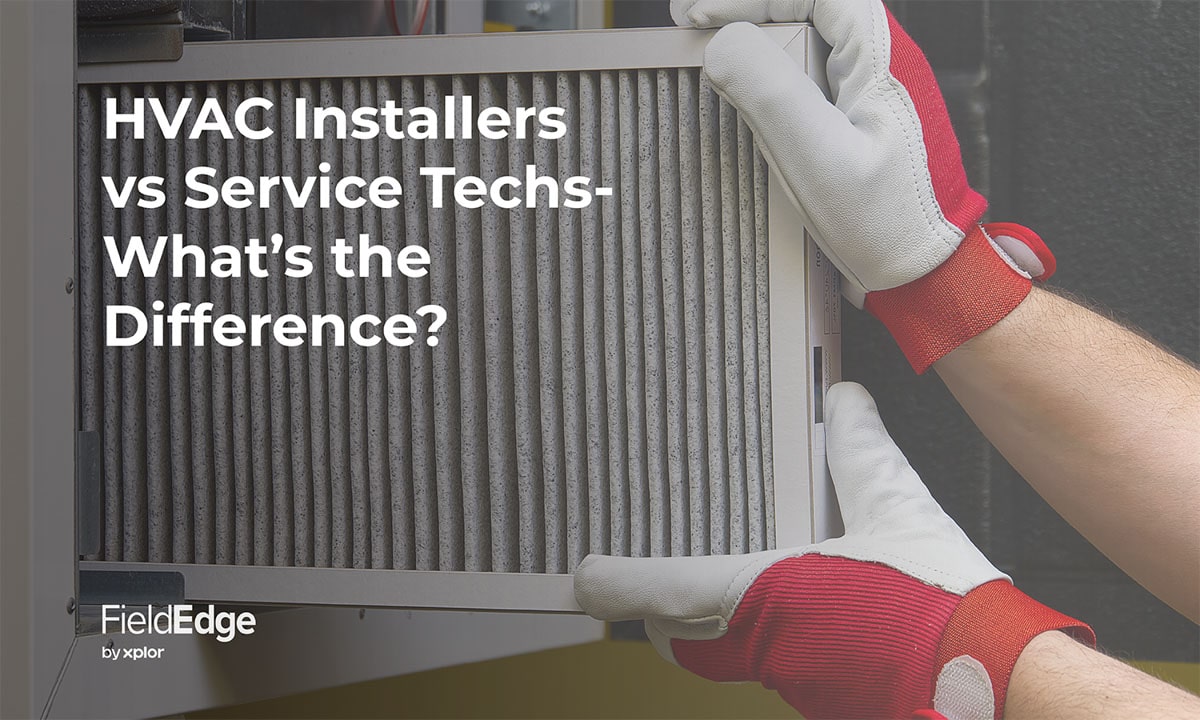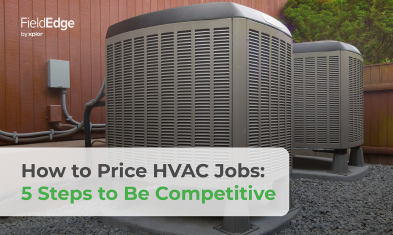Here’s a question many interested in the HVAC field ask themselves before joining an HVAC company.
If you had a choice between working as a service technician or HVAC installer, which would it be and why?
In this article we will present both sides of the coin: the pros and cons to both of these jobs and even address the overlap between the two jobs.
If you are just starting out, there are many factors to consider when deciding which area to specialize in.
In this post you will:
- Discover the difference between HVAC installers and HVAC service technicians
- Learn the pros and cons of working as an HVAC installer
- Learn the the pros and cons of being an HVAC service tech
- Review the overlap between the two jobs
HVAC Installer vs Service Technician
HVAC installers focus on putting in new equipment, while service technicians handle diagnostics, repairs, and customer support. Both roles come with unique challenges, and many technicians experience a mix of both during their careers. Choosing the right path often depends on whether you prefer physical work or problem solving with customers.
Installers usually work predictable hours, avoid on-call shifts, and have a clear schedule. The tradeoff is that installs can be repetitive and physically demanding, especially with heavy equipment. For those who enjoy consistency and structure, this path can be a good fit.
Service technicians often earn higher pay and develop stronger troubleshooting skills. The role offers variety and frequent customer interaction but comes with unpredictable hours, seasonal workloads, and added stress. Many techs start in installation early in their career and transition to service work as they gain experience.
What’s the difference between HVAC Installers and Service Techs?
There are several differences between these two types of jobs in the HVAC industry. One is not better than the other–they both have their pros and cons. And sometimes techs end up doing a mix of both!
It’s up to you what type of challenges you like better. Do you like solving problems and having more customer contact? If so, a service technician role may be best. Do you want to become a pro at installing new equipment? Then becoming an HVAC installer may be the right path.
HVAC Installers: Pros and Cons
Here are some of the benefits and drawbacks to choosing to be an HVAC installer. Depending on the individual person, some pros may outweigh the cons, or vice versa!
For example, one HVAC tech may not enjoy the predictability of installing units each day, but somebody else may love a consistent rhythm!!
Pros for HVAC Installers:
- Rarely on call – more traditional hours (usually 9-5)
- More clarity concerning your schedule, often with jobs scheduled in advance
- Do not have to deal with diagnostics or investigating HVAC problems
Cons for HVAC Installers:
- More physical demand dealing with heavy equipment
- Can get repetitive once you master the equipment and install, especially if your company specializes in a certain type of unit
HVAC Service Technicians: Pros and Cons
Now let’s look at the pros and cons of the HVAC service technician job. The hours are usually longer and the job is much more of a hussle but the satisfaction and the pay can be a big draw!
Pros for HVAC Service Technicians:
- Allows you to master the trade by troubleshooting a wide variety of systems
- Some may find this role challenging/exciting due to working on different jobs every day
- Ideal for people who enjoy problem solving and who love working face-to-face with customers
- Generally earn higher pay
Cons for HVAC Service Technicians:
- More mental stress and strain due to the customer service and on-site pricing aspect of the job
- Make more decisions yourself and are responsible for the outcome
- Often have unpredictable working hours. May be required to be on call during nights and weekends
- Dependent on seasonality – usually busier during peak winter/summer months and less busy during slower times of the year
Overlap between HVAC Installers and Service Technicians
Most professional HVAC professionals will touch both sides of the industry at some point in their career, especially working in residential HVAC. Even when working as an installer, you still are usually having some sort of customer interaction. Also, most service techs have installed a furnace or air conditioning unit at some point.
Many technicians choose to work more on the install side when they are earlier in their career as it involves less variability, but is more physically demanding. As techs progress in their career, they move to the service side which is more mental (more customer facing and diagnostics) and less physically demanding.
Want to improve your HVAC customer experience? Sign up for a FREE demo to explore how FieldEdge can help streamline your business!
HVAC Installer or Service Tech? The Choice is Yours!
You now have a better idea on the similarities and differences between two main HVAC technician categories. And remember, just because you start your career as an installer doesn’t mean you can’t switch to service (and vice versa). Both jobs have their ups and downs!
In this post you:
- Discovered the difference between HVAC installers and HVAC service technicians
- Learned the pros and cons of working as an HVAC installer
- Learned the the pros and cons of being an HVAC service tech
- Reviewed the overlap between the two jobs




